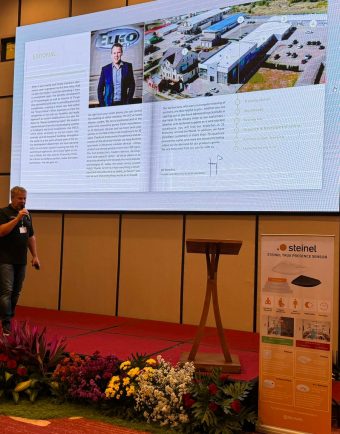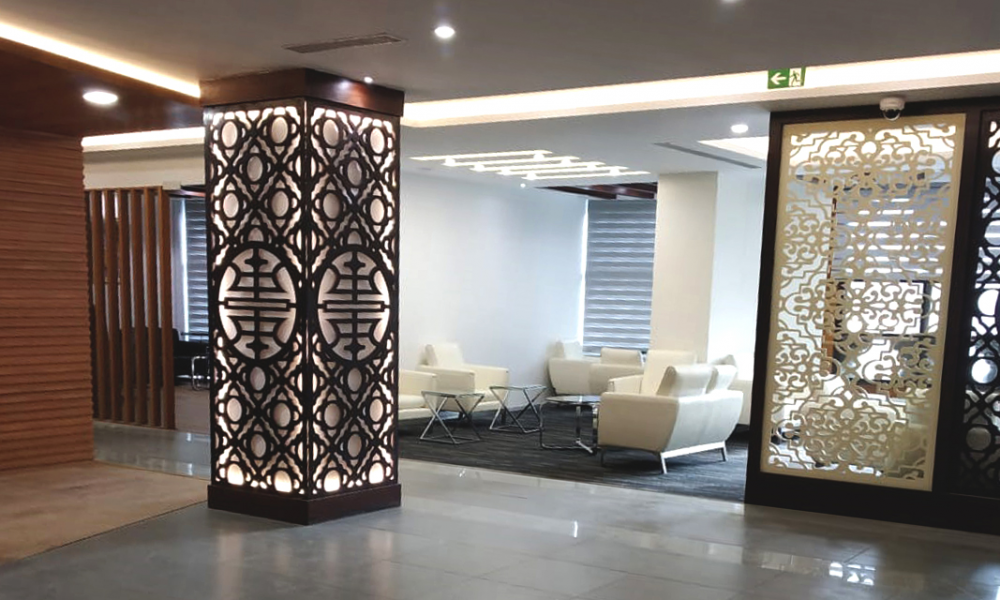

Přejít k obsahu | Přejít k hlavnímu menu | Přejít k vyhledávání

Jiří Konečný is a man whose career recalls American business fairy tales of today’s giants from Silicon Valley. He started in the garage of his father, where he helped him as a little boy to assemble wiring for cars. After military service, he joined an electronic firm and in 1993
Jiří Konečný is a man whose career recalls American business fairy tales of today’s giants from Silicon Valley. He started in the garage of his father, where he helped him as a little boy to assemble wiring for cars. After military service, he joined an electronic firm and in 1993 launched his own switching power block. In the same year he founded ELKO EP, which now has 240 employees, in Holešov, branches in 17 countries and exports to 70 countries, taking it from the classic production of relays to intelligent wiring, where it is now the second largest company in Europe.
Recently, it has been awarded the Global Exporter of the Year, and as the owner of a company in a twelve-thousand-year-old town near Kromeriz suggests, even the five-star hotels in Dubai, Mallorca complexes, clever homes in India, or the most famous building in Bhutan are not the final destination. To be sure, not so many of them have such a perspective – as the whole segment of smart housing.
We have a signed five-star hotel in Pakistan’s Islamabad, which is a big challenge, because the whole smart-electric market there is just starting out. We have recently completed a Bhutan bank and we have many projects in India ahead of us. That is what makes this project, this unique location, because the middle layer is still missing throughout the country, so projects are being done more or less for the 15% richest – typically restaurants, hotels or casinos. Of course, 15 % in India is more than 150 million people, so the market is incredibly promising.

We bet on good local people, we have a really active branch, and we’ve been able to get the first references. Today, thanks to this, we can show potential clients specific projects and specific numbers, not just brochures or videos. That’s a big advantage. And then it’s the dynamics of the whole market – such a number of buildings difficult to find elsewhere.
Of course, the numbers. They feed us; help us to invest a great deal of money in developing new products and improving those existing ones. On the other hand, I am an adventurer and I think that we managed to penetrate the markets where many Czech companies did not go. Whether it’s Bhutan, Pakistan, or even countries in Southeast Asia.
We are very successful in those branches where we have been working for many years. Slovakia, Hungary, Poland, Russia. We have a stable network of partners who bring us projects. However, in the near future I see greater potential in the new countries. Especially, the Middle or Far East, Saudi Arabia, Kuwait, Qatar, Jordan, India. Here I spend a substantial part of my working time. We have done well in Iran, but now it’s complicated thanks to the sanctions and the relationship of Iran with other countries. Today, our colleague from Iran told me yesterday that the currency was devaluing, and the exchange offices are practically closed, it is happening today because the state is trying to ensure the viability of the country by selling these currencies.

Do you address cultural or social differences with your solutions in the countries concerned?
Of course, Europe and all Western countries are progressing at a more gradual pace. As a result, people get used to technology gradually, get used to it, and are able to better evaluate each new item. There are many big leaps being made in the east. Some countries are extremely rich in oil, gas, or other mineral resources. Today, everyone has the ability to travel or watch the Internet, and they are usually huge pitfalls in all new technologies. But when I give an example on the iPhone X mobile phone, the average European is able to use about 90% of the features while people in this region are able to use about 40 %. This is also the case with intelligent wiring. We say, here it saves you, it gives you comfort, here it can collect and evaluate data. But they are mostly interested in just one dimension, and they are more likely to adopt the technology as a whole.